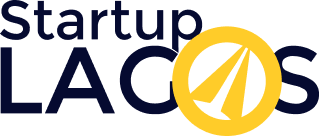In recent years, the mantra of "disrupt or be disrupted" has become synonymous with innovation within the technology sector. This relentless pursuit of disruption, marked by the aggressive targeting of established industries, rapid product launches, and failure to prioritize stability, has reshaped economies, consumer behaviors, and workplace dynamics. However, amidst this fervor, a growing phenomenon dubbed "disruption fatigue" signals the urgent need for the industry to reconsider its obsession with breaking things at all costs.
Disruptive innovation has undeniably catalyzed progress, creating new markets and democratizing access to information and services. Yet, its consequences extend beyond technological advancement. Societally, the unrelenting push to disrupt often destabilizes communities, erodes trust, and undermines social cohesion. For instance, gig economy platforms revolutionized labor markets but introduced precarious employment conditions that threaten workers' security and rights. While these innovations offer immediate benefits, they frequently neglect the long-term implications on societal well-being.
Labor markets are particularly vulnerable under this paradigm. Startups and tech giants prioritize rapid growth and market share over sustainable employment practices, resulting in job insecurity, skill obsolescence, and widening income inequalities. This relentless drive to "break" traditional business models often disregards the societal costs, such as increased inequality and reduced job stability, that accompany technological upheaval.
Regulation also struggles to keep pace with the velocity of disruption. Governments often play catch-up, attempting to implement safeguards after harmful effects manifest, rather than proactively shaping policies that encourage responsible innovation. This reactive approach exacerbates public distrust and regulatory uncertainty, potentially hindering sustainable growth.
The industry’s obsession with disruption fosters a cycle of innovation that can become counterproductive. It fosters an environment where stability is sacrificed for novelty, often at the expense of societal and economic resilience. To move beyond disruption fatigue, tech companies must embrace responsible innovation, one that balances growth with social responsibility, considers long-term impacts, and fosters inclusive benefits for society at large.
In essence, the industry must shift from a relentless pursuit of breaking things to a paradigm of building thoughtfully, with sustainability and societal well-being at its core. Only then can technological progress truly serve as a force for lasting positive change, rather than a series of disruptive shocks that sow instability.
Play audio








No comments